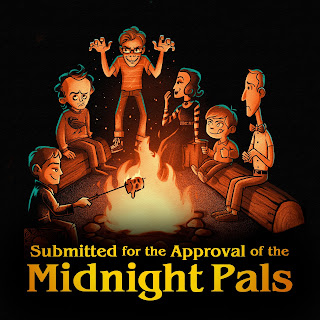In the past year I acquired a Starlink internet connection and have been able to finally indulge in the joys of high-speed streaming in my rural home (one of the few things Elon got right!) While nearly everyone else of my acquaintance has been able to enjoy entertainment this way for more than a decade, it is a new experience for someone as persistently behind the times like me. To my joy, the streaming options include a far wider range of Sherlock Holmes media than I had ever anticipated.
Of course, I was delighted to find the Jeremy Brett Granada episodes, in addition to the less well-known Sherlock Hound, by the famed animation artist Hayao Miyazaki. Up until recently, Roku was showing the notable Private Life of Sherlock Holmes, written and produced by Billy Wilder and starring Robert Stevens. Rarely seen, this version shows an unusually sensitive Holmes, more discernably along the queer spectrum than any others to that date.
But a deeper dive into the Kanopy app yielded an even greater treasure, or so I thought at the time. I was able to use some of my library subscription credits to watch the 1916 silent film Sherlock Holmes, starring William Gillette and based off the play he wrote of the same name. In 2015, a mislabeled silver nitrate copy of the previously lost film was found in a French archive and restored the following year. Gillette has long held the reputation of providing the best portrayal of our iconic detective ever, so I was quite interested in watching this sole representation of his acting skills.
Many Sherlockians today have seen a version of this play Gillette wrote based off Doyle’s stories. Incriminating letters, Professor Moriarty teaming up with the Larrabees, the denouement in the Gasworks, and of course the love interest Alice Faulkner: the only thing this play lacks other than Irene Adler is adherence to the aromantic aspect of our detective. We have all been there and restrained ourselves from rolling our eyes with varying degrees of success.
And then there was Gillette himself. Deerstalker, calabash pipe, the works. He was masterful. I can easily understand why Doyle considered him the best actor to play him. Gillette inhabited Sherlock Holmes as good as any other actor I have seen.
What I failed to consider before viewing this movie, though, was the age disparity between Gillette and his leading lady/love interest. In 1899, when he wrote and starred in his play, he was forty-six years old. Mature, yes, but perhaps plausible as the potential love interest for a young woman for that day and age. (Shades of Laurie King, anyone?) But by the time of the film in 1915 he was sixty-three years old, and the wrinkles could not be hidden by the stage makeup. During the final revival of the play Gillette participated in, he was seventy-six years old. Seventy-six! To be played as the love interest of a very young woman of approximately twenty years of age.
In a post-Harvey Weinstein period, this was just . . . no. No, no, no. A big helping of NOPE.
So, my effort to conduct as fair a fan girl review of William Gillette as I could come up with was forever tainted. Please accept my apologies. May I direct you instead to the marvelous Collier’s illustrations of the same actor done by Frederick Dorr Steele? They are stunning, dramatic and beautiful enough to cleanse your palette of that sour aftertaste of patriarchy.
Or, maybe there is another, more modern streaming version of Sherlock Holmes I could share with you? Have you ever tasted Bitter Karella? No, not the melon. The award-winning gothic horror writer, with twitter, tumblr, and substack feeds, creates a regular satire called “Submitted for the Approval of the Midnight Pals.” This imagined late night club parody of horror writers meet periodically to share scary stories around a late-night campfire, with scorching fun poked at the regulars as well as guests. The regulars include Stephen King, Dean Koontz, HP Lovecraft, Clive Barker, Edgar Allen Poe and of course my favorite, Mary Shelley.
The Midnight Pals have just recently been produced as an audio podcast, streaming on a variety of apps near you, including Spotify. Last month on November 21st, the guest was Arthur Conan Doyle, and after much arm twisting, he shared his Tale of Sherlock Holmes and the Case of the Midnight Society. No one wanted to hear about Professor Challenger, and Doyle was coerced once again into telling a story about the character he was just so tired of writing about.
It is ribald and rude. The actors lean into their roles with gusto, and the quick-witted writing flirts and dances (possibly even twerks) with so many of the Sherlockian tropes we all know so well. The Midnight Pals stories, including this one, are fully conversant in the not so adjacent queer aspects of literature both past and present. The audience of the 1899 Sherlock Holmes play probably would have been absolutely horrified by this podcast.
And I loved it.
Don’t get me wrong, I liked William Gillette as Sherlock Holmes. But his storyline did not hold up to the interior logic of Doyle’s stories. When he told Gillette “You may marry him or murder him or do what you like with him” generations of fans suffered the consequences. And then there was the age difference between the actors. It was just too much to swallow.
And while raunchy, I have to say that I prefer Bitter Karella’s writing to Gillette’s. It logically follows the style and more of the intent of the writer being parodied. It leans into the humor instead of manufacturing romance where none would fit. Audiences change along with the times, and so do the pastiches and parodies.
Besides, who doesn’t want to imagine Mary Shelley with a switch blade?







